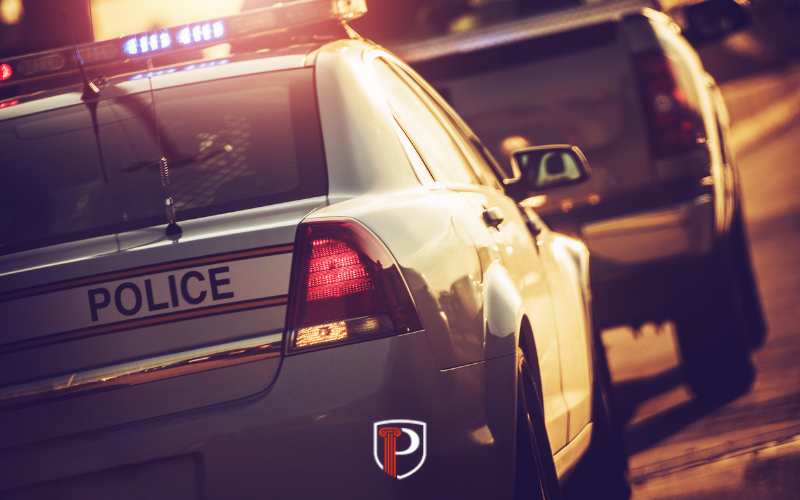Dealing with a revoked driver's license in Illinois can feel like navigating a complex maze of regulations and requirements. Unlike a suspension, a revocation means your driving privileges have been terminated indefinitely due to serious infractions such as DUIs or reckless driving. Reinstatement is possible, but the process is stringent and demands careful attention to detail.
If you are wondering whether you can get your revoked license reinstated in Illinois, our law firm is here to guide you through the intricate process. We handle difficult cases of license reinstatement and can help you understand the specific steps involved, from attending a hearing to completing necessary rehabilitation programs.
Don't navigate this challenging journey alone—contact our license reinstatement lawyer in Kane County today to find out how we can assist you in restoring your driving privileges and regaining your freedom on the road. Call us at (708) 274-4499 to review your options during a free consultation.
Common Reasons for a Drivers License Revocation
Driver's license revocation is a severe penalty that indicates the complete termination of driving privileges. Here are some common reasons why a driver's license might be revoked:
- DUI/DWI Offenses: Driving under the influence of alcohol or drugs is one of the most common reasons for license revocation. Multiple DUI offenses increase the likelihood of revocation significantly.
- Excessive Traffic Violations: Accumulating too many traffic violations within a specific time frame can lead to revocation. Many states use a point system, and exceeding a certain number of points can result in license revocation.
- Reckless Driving: Demonstrating a pattern of reckless or dangerous driving behavior can lead to revocation, as it shows disregard for the safety of oneself and others on the road.
- Driving Without Insurance: Operating a vehicle without the required insurance coverage can result in revocation, especially if involved in an accident without insurance.
- Vehicular Manslaughter or Homicide: Involvement in a fatal accident, particularly if negligence or unlawful behavior like DUI was a factor, can lead to immediate revocation.
- Medical Reasons: Health conditions that impair driving ability (e.g., certain vision impairments, epilepsy, or severe diabetes) might prompt a revocation if they are deemed to significantly impair a person's ability to drive safely.
- Failure to Pay Fines or Child Support: In some jurisdictions, failure to pay court-imposed fines or child support can result in license revocation as a means of enforcing payment compliance.
- Fraudulent License Application: Providing false information or fake documents when applying for a driver's license can result in revocation upon discovery.
- Failure to Appear in Court: Ignoring court summons for traffic violations or other offenses can lead to a revocation as a punitive and enforcement action.

These reasons highlight the critical importance of maintaining lawful and safe driving practices. If facing potential revocation, it's advisable to consult with an experienced lawyer to explore options for defense or potential reinstatement.
What is the Reinstatement Process for a Revoked Drivers License in Illinois?
The reinstatement process for a driver's license in Illinois is detailed and often challenging, requiring individuals to navigate several steps that demonstrate their readiness and legal eligibility to drive again. Here’s an overview of the steps involved:
- Eligibility Period: First, determine when you are eligible to apply for reinstatement. The eligibility date depends on the reason for the revocation and any prior offenses. Typically, there's a mandatory minimum period during which your license cannot be reinstated.
- Drug/Alcohol Evaluation: If the revocation was due to DUI or a related offense, you must undergo a drug/alcohol evaluation, which classifies your use and determines risk and treatment recommendations.
- Proof of Treatment: Based on the evaluation, you may need to complete a treatment program and provide proof of completion. This might include substance abuse counseling, completion of a rehabilitation program, or attendance at support group meetings.
- Requesting a Hearing: For a revoked license, you must request a formal hearing with the Illinois Secretary of State's office. This requires a non-refundable fee and completing specific forms available through the Secretary of State's website.
- Formal Hearing: During the formal hearing, which is much like a court trial, you must present evidence to support your case for reinstatement. This includes documentation of your treatment, evidence of your sobriety (such as clean drug tests), and any other materials that support your argument that you are a safe and responsible driver.
- Secretary of State Decision: After the hearing, the Secretary of State will issue a decision based on the hearing officer’s recommendation. This decision might grant reinstatement, continue the revocation, or grant a restricted driving permit that allows driving under certain conditions.
- Payment of Fees: If granted, you will be required to pay a license reinstatement fee. Additionally, if your driver’s license was physically taken away or expired, you might need to apply for a new license, which could involve taking written, vision, and possibly road tests.
- Obtaining Car Insurance: Before you can drive legally again, you will need to secure car insurance and possibly file an SR-22, which is a certificate of financial responsibility.
- Maintaining Compliance: Post-reinstatement, it’s crucial to maintain compliance with all legal requirements and possibly periodic checks or continued participation in treatment programs, depending on the conditions set forth at the successful hearing.
This process can be lengthy and requires meticulous attention to detail, making it advisable for individuals to consult with or hire a license restoration attorney with experience handling reinstatements. An experienced attorney can help navigate the legal complexities and increase the likelihood of a successful outcome.
How Long Do You Have to Wait Before You Can Reinstate a Revoked Illinois Driver's License?
The waiting period before you can apply for reinstatement of a revoked driver's license in Illinois depends on the reason for the revocation and any prior offenses. Here are some general guidelines for common scenarios:
- DUI Convictions: A conviction of a DUI comes with a loss of driving privileges, the length of which depends on your record:
- First Offense: Typically, you must wait at least one year before applying for reinstatement.
- Second Offense within 20 Years: A minimum wait of five years is required.
- Third Offense: A minimum wait of ten years is required.
- Fourth or Subsequent Offense: These are generally considered non-reinstatable, meaning the revocation is permanent.
- Reckless Homicide or Aggravated DUI Involving a Fatality: The waiting period is typically five years for the first offense.
- Other Major Violations: Depending on the violation, the waiting period can vary, often ranging from one to five years.

It is important to check with the Illinois Secretary of State or a legal professional to understand the specific waiting period that applies to your case, as these periods can vary based on the details of the offense and your prior driving history. Additionally, meeting the minimum waiting period does not automatically guarantee reinstatement; applicants must successfully complete the reinstatement process, including a formal hearing and any required treatments or educational programs.
Types of Reinstatement Hearings in Illinois
In Illinois, the process of reinstating a driver's license can involve either an informal or formal hearing, depending on the severity of the offense and the specific circumstances surrounding the suspension or revocation. Here are the key differences between an informal and formal hearing:
Informal Hearing
Informal hearings are typically used for less severe cases or first-time offenders. These include cases such as driving with an excessive number of points, first-time DUI offenses without injury, and other minor infractions.
Informal hearings are conducted by a hearing officer and do not require an appointment. They are generally less structured than formal hearings. These hearings are usually held at a local Driver Services facility. The atmosphere is more relaxed compared to formal hearings.
The hearing officer reviews the case, listens to the petitioner's testimony, and makes a decision based on the evidence and arguments presented during the hearing.
The results of an informal hearing can include full reinstatement, granting of a restricted driving permit, or continuation of the suspension/revocation. The decision is typically given verbally at the end of the hearing or mailed shortly after.
Formal Hearing
Formal hearings are required for more serious offenses, including repeat DUI offenses, cases involving fatalities, and other major violations.
Formal hearings are more procedural and require the petitioner to file a request and pay a non-refundable fee. Legal representation is often recommended due to the complexity and seriousness of the issues addressed.
Learn More: How a Lawyer Can Help You Reinstate Your License
These hearings are conducted at specific Secretary of State offices that handle formal hearings. They are structured similarly to court trials.
A formal hearing is presided over by an administrative law judge. It involves testimony, the presentation of evidence, and possibly witnesses. Both the petitioner and the state can have attorneys present.
The decision from a formal hearing is documented in a written order, which details the findings and the rationale for the decision. It may grant reinstatement, issue a restricted driving permit, or uphold the suspension/revocation.
Key Differences:
Formal hearings are more complex, adhere to stricter procedural rules, and resemble a court trial, whereas informal hearings are simpler and more straightforward. Informal hearings are generally suitable for less severe cases, while formal hearings are reserved for more serious or complicated situations.
While legal representation can be beneficial in both types of license hearings, it is particularly crucial in formal hearings due to their complexity and the higher stakes involved.
Choosing the right type of hearing and preparing adequately can significantly impact the outcome of a license reinstatement case in Illinois. It's advisable to consult with a legal professional who can provide guidance tailored to the specifics of your case.
Can You Get a Restricted Driving Permit if Your Drivers License Was Revoked?
In Illinois, it is possible to obtain a Restricted Driving Permit (RDP) even if your driver's license has been revoked, under specific circumstances. An RDP allows an individual to drive under certain conditions while their standard driving privileges are revoked. Here's how the process generally works:
- Eligibility: The eligibility for an RDP depends on the reason for the revocation and the individual’s driving history. Generally, to be considered for an RDP, the applicant must demonstrate that not being able to drive results in undue hardship by affecting their ability to continue their employment, education, medical treatment, or other necessary life activities.
- Hearing Process: To obtain an RDP, you must undergo a hearing with the Illinois Secretary of State’s office. There are two types of hearings: formal and informal. A formal hearing is required if the revocation is due to offenses such as DUIs, particularly if there are multiple DUIs or a fatality was involved. An informal hearing may be sufficient for less severe cases.
- Documentation and Requirements: Applicants must provide detailed documentation during the hearing process. This includes evidence of hardship, proof of any treatment programs completed (especially if the revocation was due to alcohol or drug issues), a current professional drug/alcohol evaluation, and sometimes character references.
- Installation of an Ignition Interlock Device: Particularly in cases involving DUI, the RDP may be contingent upon the installation of a Breath Alcohol Ignition Interlock Device (BAIID) in the driver’s vehicle. This device requires the driver to provide breath samples before the car starts.
- Approval and Conditions: If the RDP is granted, it will include specific conditions that limit when, where, and under what circumstances the individual can drive. Compliance with these conditions is closely monitored, and any violation can result in the revocation of the RDP.
- Regular Reviews: Holders of an RDP may be subject to regular reviews and must reapply for the permit as specified by the Secretary of State.

Obtaining an RDP involves a thorough and often challenging legal process, reflecting the seriousness with which Illinois treats revocations and the restoration of driving privileges. Those seeking an RDP are advised to consult with a legal professional to guide them through the process and improve the likelihood of a successful outcome.
Our Firm is Here to Help With Revoked License Reinstatement
Navigating the process of reinstating a revoked driver's license in Illinois can be daunting and complex, filled with strict requirements and legal hurdles. However, it's crucial not to let these challenges deter you from seeking to regain your driving privileges. Working with a skilled attorney who knows traffic law and license reinstatement can significantly ease the burden, offering you the best chance at a favorable outcome.
If your driver's license has been revoked, consider reaching out to a license reinstatement attorney. An attorney can provide valuable guidance through each step of the reinstatement process, from preparing for your hearing to ensuring all documentation is correctly submitted.
They can also help you understand the specific conditions of your revocation, represent you during formal hearings, and argue on your behalf. With the right support, you can navigate the legal complexities more confidently and increase your chances of getting back on the road legally.
Remember, the road to reinstatement begins with taking informed, deliberate steps. Don't navigate this journey alone; contact our law firm today to discuss your case and explore your options for reinstating your driving privileges. Let us help you drive towards a brighter future.
